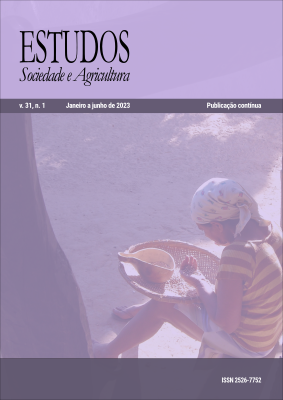Tragic rurality in Juan Rulfo: considerations between fiction and reality
DOI:
https://doi.org/10.36920/esa31-1_02Keywords:
rurality, literature, tragedy, history, MexicoAbstract
This analysis of literature by the Mexican writer Carlos Juan Nepomuceno Pérez Rulfo Vizcaíno (1917–1986) is intended to further explore the meanings of his tragic plots set among and making reference to social inequality and rurality in Mexico during the first half of the twentieth century. We focus on The Plain in Flames (1953) and Pedro Páramo (1955), two notoriously complex and enigmatic texts relating to the social reality in Mexico in the early 1900s and the social imagination permeated by mysticism and the fantastic. Rulfian literature consequently acted as an interwoven discourse oscillating between the real and the imaginary, lending meaning to historical experiences. In this sense, tragedy is one of the fundamental elements in Rulfo’s literary work, which essentially presents elements of a rurality permeated by scarcity, exploitation, and poverty. His writings represent an original contribution to decolonial thinking by offering a literary manifestation that advocates for and dialogues with its reality in a purposefully pragmatic way. The rural tragedy contained in this work is not only an accusation, but also an inevitable clash with reality.
Downloads
Downloads
Published
Issue
Section
License
Copyright (c) 2023 Rodrigo Kummer, Eli Napoleão de Lima (in memoriam)

This work is licensed under a Creative Commons Attribution 4.0 International License.
Authors who publish in this journal agree to the following terms:
a) Authors maintain the copyright and grant the journal the right of first publication, with the work simultaneously licensed under the Creative Commons Attribution License which allows the sharing of the work with acknowledgment of authorship and initial publication in this journal.
b) Authors are authorized to take additional contracts separately, for non-exclusive distribution of the version of the work published in this journal (eg publish in institutional repository or as a book chapter), with acknowledgment of authorship and initial publication in this journal.
c) Authors are allowed and encouraged to publish and distribute their work online (eg in institutional repositories or on their personal page) at any point before or during the editorial process, as this can generate productive changes, as well as increase the impact and citation of published work (See The Effect of Free Access).






